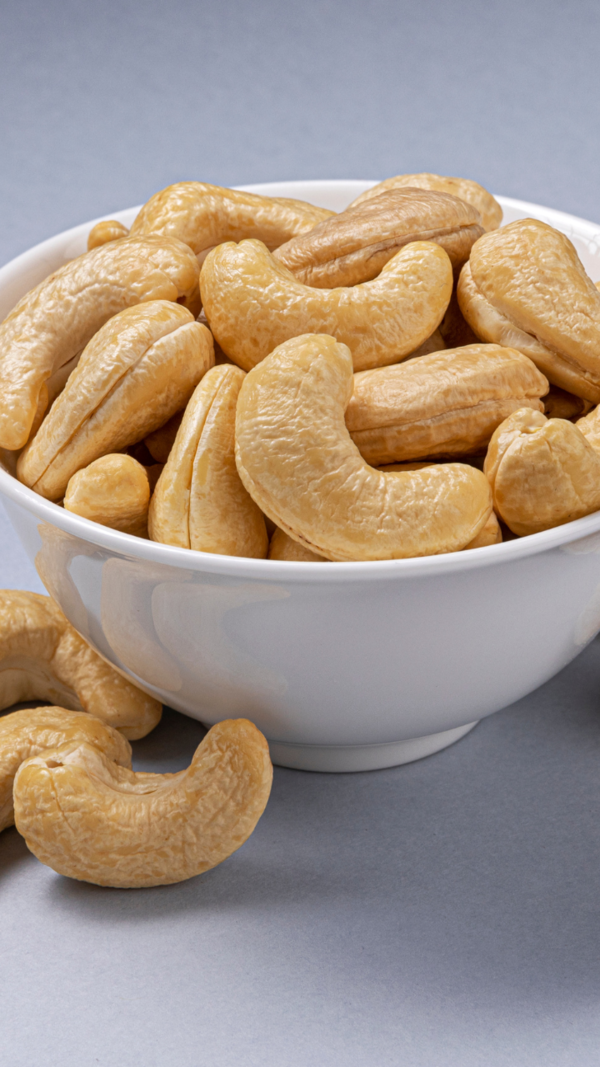Trending
This story is from August 25, 2019
Eat these foods to fight vitamin B12 deficiency
Here's what you can eat to prevent from Vitamin B12 deficiency!

There are only two vitamins that can be produced by our body. Vitamin D is made in our skin when exposed to sunlight, and vitamin K is created naturally in the intestinal tract. Apart from these two, all other vitamins are obtained through food. Vitamin B12 is a common deficiency, but the approach to treating it is a bit different than treating other vitamin deficiencies.While vitamins A, B, C, D, and E are found in many foods, vitamin B12 is majorly found only in animal products. This makes it difficult for vegetarians to fulfil the requirement for vitamin B12, although there are a few options.
One might not be able to diagnose a vitamin B12 deficiency immediately, as the symptoms might not seem alarming at first. Some symptoms of a deficiency of this vitamin are weakness, tiredness, pale skin, a smooth tongue, constipation and other stomach problems, and muscle weakness. In more severe cases, people might experience loss of vision, depression, memory loss, or behavioural changes. Let us examine some dietary measures to be in tune with the vitamin B12 requirement.
Vitamin B12 is required by the body in small amounts, and most people end up fulfilling the requirement by consuming foods which have a small amount of the vitamin. However, there are a few foods that can help vegetarians and vegans remedy their deficiency. Before getting to that, let us take a look at some of the best sources of vitamin B12. As mentioned earlier, most foods rich in vitamin B12 come from animal products. To start with, one of the best vitamin B12 sources is organ meat, more specifically the liver and kidneys. A 100 gram serving of lamb liver contains a whopping 1500% of the recommended daily intake for vitamin B12.

Vegetarians can also fulfil their vitamin B12 requirements by consuming certain foods. The best source is dairy products like milk, cheese and yogurt. One cup of whole milk contains 18% of the RDI for vitamin B12. among cheese, Swiss cheese is known to have the highest vitamin B12 content, although other types of cheese also provide sufficient amounts of the vitamin. Yogurt is also a decent source of vitamins, among which lies vitamin B12.
The best and most practical way for vegans to get their intake of vitamin B12 is with the help of fortified foods. Fortification is a process of adding nutrients to a food that are not already present. Foods like cereal, nutritional yeast, and non-dairy milk are fortified with vitamin B12, making them a safe and reliable source to replenish vitamin B12 reserves in the body. Although not completely healthy by itself, fortified cereals can be consumed by people deficient in the vitamin. Two tablespoons of fortified nutritional yeast provides 130% of the RDI for vitamin B12. One cup of non-dairy milk like soy milk provides 45% of the RDI for vitamin B12.
Another option to keep the required intake for vitamin B12 intact is to take supplements. Research has found that dietary supplements have more or less the same effect on the body as food. This means that supplements can also be used as an alternative for food in case of any problem. All in all, consume what you think is best suited for you, be it food or capsules. Just keep a few things in mind. Get your vitamin levels checked regularly, and always consult a doctor before making any changes in your diet.
One might not be able to diagnose a vitamin B12 deficiency immediately, as the symptoms might not seem alarming at first. Some symptoms of a deficiency of this vitamin are weakness, tiredness, pale skin, a smooth tongue, constipation and other stomach problems, and muscle weakness. In more severe cases, people might experience loss of vision, depression, memory loss, or behavioural changes. Let us examine some dietary measures to be in tune with the vitamin B12 requirement.
Vitamin B12 is required by the body in small amounts, and most people end up fulfilling the requirement by consuming foods which have a small amount of the vitamin. However, there are a few foods that can help vegetarians and vegans remedy their deficiency. Before getting to that, let us take a look at some of the best sources of vitamin B12. As mentioned earlier, most foods rich in vitamin B12 come from animal products. To start with, one of the best vitamin B12 sources is organ meat, more specifically the liver and kidneys. A 100 gram serving of lamb liver contains a whopping 1500% of the recommended daily intake for vitamin B12.

Fish like sardines, tuna, trout, and salmon are all excellent sources of vitamin B12. not only do these fish provide vitamin B12, but they are also rich in many other micro and macronutrients. Other aquatic animals like clams are also a good source of the vitamin. Just one small clam can provide 165% of the recommended vitamin B12 daily intake. Another great and easily available source of vitamin B12 for non-vegetarians is eggs. Having just two whole eggs supplies the body with 22% of the RDI for vitamin B12, along with many other nutrients.
Vegetarians can also fulfil their vitamin B12 requirements by consuming certain foods. The best source is dairy products like milk, cheese and yogurt. One cup of whole milk contains 18% of the RDI for vitamin B12. among cheese, Swiss cheese is known to have the highest vitamin B12 content, although other types of cheese also provide sufficient amounts of the vitamin. Yogurt is also a decent source of vitamins, among which lies vitamin B12.
The best and most practical way for vegans to get their intake of vitamin B12 is with the help of fortified foods. Fortification is a process of adding nutrients to a food that are not already present. Foods like cereal, nutritional yeast, and non-dairy milk are fortified with vitamin B12, making them a safe and reliable source to replenish vitamin B12 reserves in the body. Although not completely healthy by itself, fortified cereals can be consumed by people deficient in the vitamin. Two tablespoons of fortified nutritional yeast provides 130% of the RDI for vitamin B12. One cup of non-dairy milk like soy milk provides 45% of the RDI for vitamin B12.
Another option to keep the required intake for vitamin B12 intact is to take supplements. Research has found that dietary supplements have more or less the same effect on the body as food. This means that supplements can also be used as an alternative for food in case of any problem. All in all, consume what you think is best suited for you, be it food or capsules. Just keep a few things in mind. Get your vitamin levels checked regularly, and always consult a doctor before making any changes in your diet.
End of Article
FOLLOW US ON SOCIAL MEDIA








